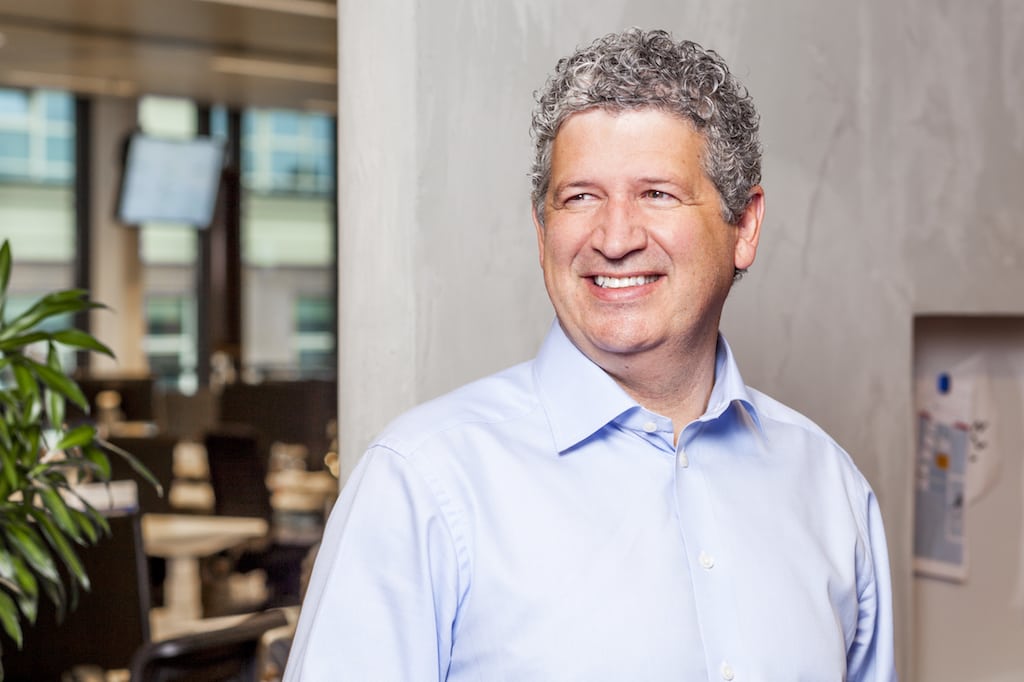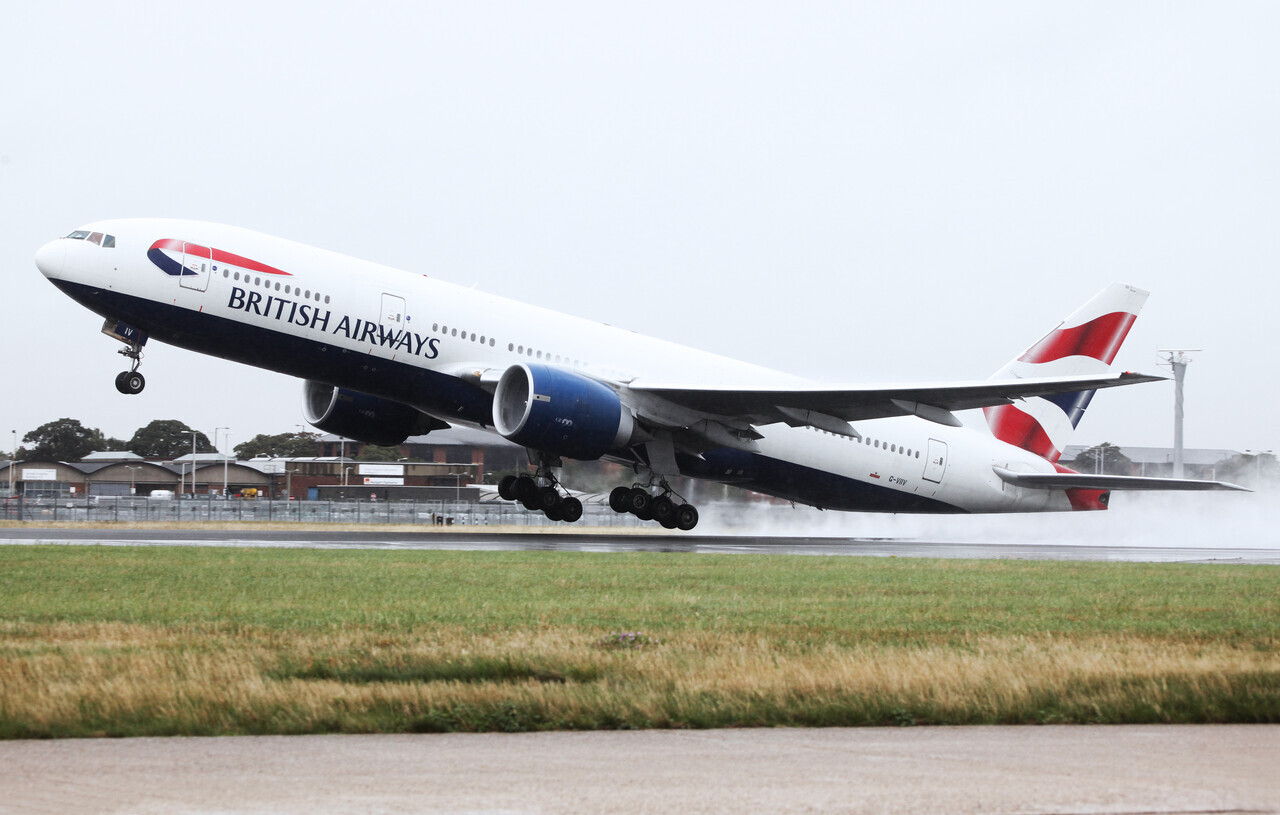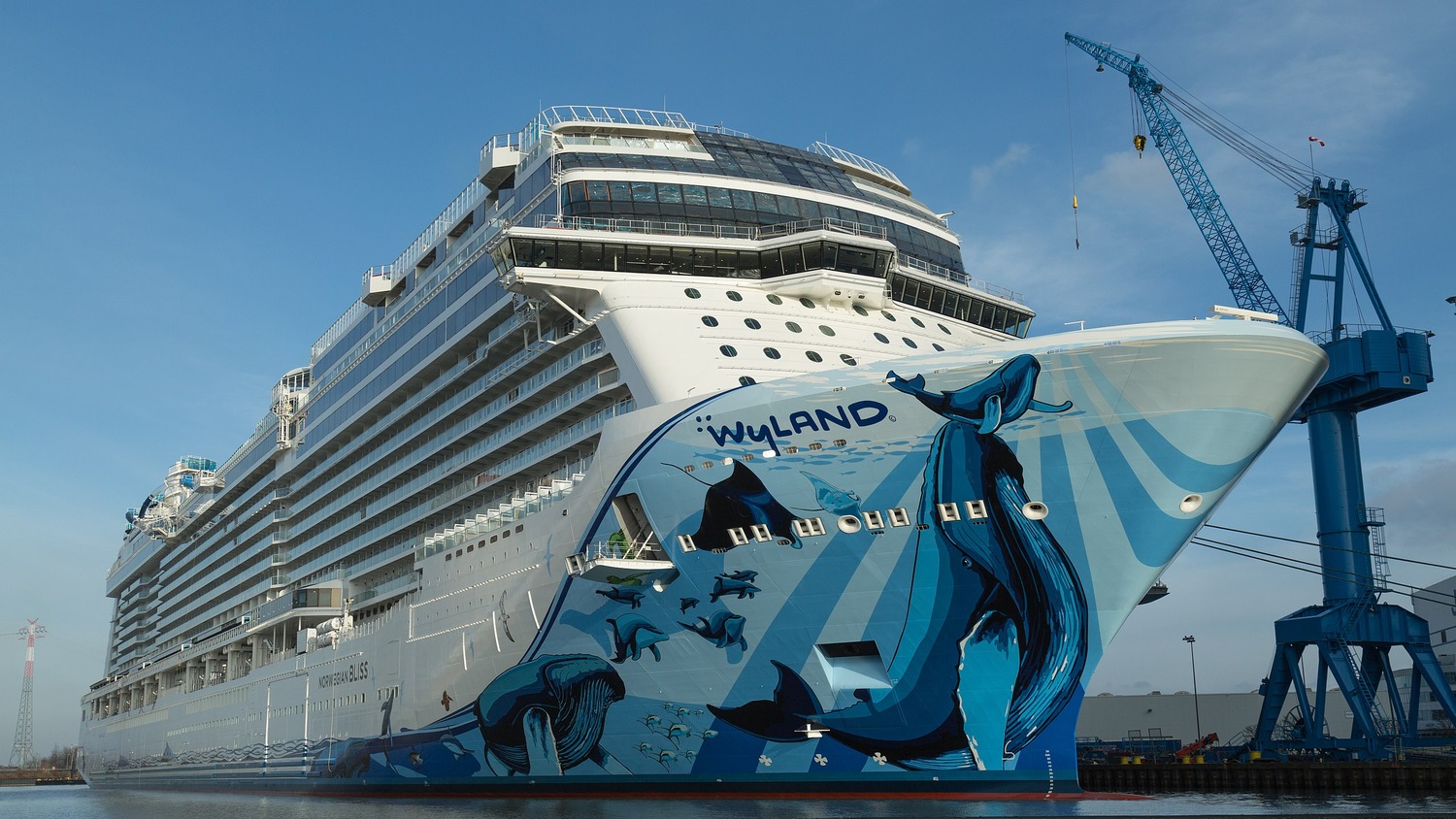Interview: Priceline CEO on Why He Didn't Spend $4 Billion to Acquire HomeAway

Skift Take
Priceline Group CEO Darren Huston says his company didn't get involved when HomeAway put itself up for sale because "we're quite picky" and HomeAway's model of allowing vacation rental owners to wait 24 hours before confirming a booking and charging travelers a booking fee "just didn't fit us."
These were among the more newsy points that Huston made when Skift conducted a one-one-one interview [in full, below] with him at the Phocuswright conference in Hollywood, Florida, on November 18.
Expedia Inc. announced November 4 that it would acquire HomeAway for $3.9 billion in cash and stock. Asked whether the Priceline Group got involved in that sales process, Huston said: "No. Although we've talked to them for years. We were very much aware of it. We knew kind of how it was going. We did a little bit of thinking and said this isn't the right thing for us. We're quite picky."
Huston is betting that's his Booking.com's alternative model in vacation rentals -- instantly confirmable online bookings with no traveler booking fee -- will win out over the Expedia-HomeAway goal of online bookings and a traveler service fee along with letting vacation rental owners vet reservations before accepting them.
"We've now been on a path and are sticking to the principle of properties being instantly bookable and verifiable, and no consumer fees," Huston said. "Now we're so far along the path that buying something that doesn't fit that model just didn't fit us."
The Priceline Group's Booking.com unit has been adding apartment hotels and vacation rentals for years, and Huston had some pointed things to say about the Priceline Group's strategy in vacation rentals and merger and acquisition activities versus Expedia Inc.'s.
"I didn't end up spending $4 billion, and we did it with just a couple of handful of people," Huston said, referring to building Booking.com's vacation rental business. "That is an indication of what makes our company special. It's been organic execution, it has created more value for the company than M&A, and that continues to be our bet."
Huston argues that the Priceline Group strategy is to build or acquire leading brands -- specialty stores, he calls them -- as opposed to Expedia Inc.'s acquisition-consolidation strategy related to brands that have struggled, including Travelocity and Orbitz Worldwide.
"I like playing up that hand better than going in and buying companies that aren't doing very well, and stripping out all the workforce and slapping them on to a [common platform]," Huston says.
Skift discussed these and other issues with Huston, who heads what he describes as the globe's third largest e-commerce company behind Amazon and Alibaba.
Skift: In a previous session at the conference there was a metasearch debate and Kayak CEO Steve Hafner said TripAdvisor Steve Kaufner will find out that TripAdvisor Instant Booking is not going to be such a big deal. Do you think he's right?
Huston: To be honest, I have the same opinion and I have the experience through Kayak, as well, that Instant Book isn't the panacea. It's not going to be a massive game-changer in the industry. Of course, we're an advertising buyer so if our media partners want to change the landscape, then we're going to try and find a way to participate that benefits us, both finds us bookings and is true to our brand, and gives us a chance to market to the customer. That said, who really knows because the Kayak execution is different than the TripAdvisor execution. And I'm not a negative on trying new things. The industry needs to keep evolving and trying, and we shouldn't get stuck in guessing, "That didn't work here, so it's not going to work there," because there are many variants. Let's see how the consumer responds. That's the critical thing.
Skift: When I looked at your first presence on TripAdvisor Instant Booking, it covered all the online travel agency booking options. [Subsequent to this interview, Expedia CEO Dara Khosrowshahi stated that the Priceline Group's Instant Booking relationship with TripAdvisor is an exclusive online travel agency relationship for a period of time.] It looks like it could be something for you.
Huston: It's good. The great thing is hopefully it drives some incredible bookings, but it's also good marketing. One of the challenges in a meta placement is it just shows Booking.com $180, Travelocity $190. There's nothing there about who you are. One thing I like about the TripAdvisor Instant Booking execution is it says something like, "TripAdvisor recommends using Booking.com," or we're a great partner, or we've got 24 by 7 phone service.
Skift: Your brand is shown all over the place there.
Huston: Yeah, we want differentiation. We want people to feel that if there's a dollar difference that you might pick Booking.com because we have a lot to offer. We got a great service and great support.
Skift: Google does those merchandising messages, right?
Huston: Yeah, exactly. They started it. What the media owner wants is to drive more conversion, and early insight with Google and others who tried to highlight why one vendor's different than another is it does drive conversion. Particularly for us, because we have a big-scale global product that we stand behind, which is different than maybe a fly-by-night operation that might have a slightly better price or something.
Skift: What's it going to take to get you to join Book on Google? Is that a whole different proposition?
Huston: What we like about the Trip Assist is that once it goes live at least people are going to have a model to look at. Like this is the way we would do business, and the big things are we have great branding, the customer's not confused on who they're booking with. We send out the confirmation page.
Skift: Was TripAdvisor really hesitant to give you that branding? They obviously wanted you so much to participate, were they really stubborn about giving you branding?
Huston: They're learning to. There comes a point where you're at it for as long as they've been at it, then we had a chance to negotiate the deal we really wanted. I'm proud of it and happy with it. I know it's going to help Steve [Kaufer]. I'd be happy if TripAdvisor's successful, Expedia is successful, HomeAway ... I'm not out to hurt anyone. I'm just trying to do a good business for our companies. The fact that this helps TripAdvisor ... What I care about most is it helps our company. There was plenty of room to find a solution that was best for both, and we found it.
Skift: How's the Expedia-HomeAway deal going to impact you guys? You were quoted as saying you like the cards that you have in vacation rentals.
Huston: Exactly. When I started Booking four years ago, we were mostly a hotel company. Since then we've expanded into alternative accommodations, and now vacation rentals. The good news is when we started the journey, we didn't know how it was going to work. We didn't know if there was such a market as the people who were buying beds. We've discovered that that was completely the case, that people go to Barcelona ... at least our traffic ... and they're just looking for a place to stay. The more beds and options you can offer, the richer your assortment becomes. As we announced, we have 6.6 million rooms that aren't hotels, and that's three times as much as our nearest competitor. We've now been on a path and are sticking to the principle of properties being instantly bookable and verifiable, and no consumer fees. Now we're so far along the path that buying something that doesn't fit that model just didn't fit us.
In a way, it's good that Expedia's in this, too, because the more players that are in the vacation rental space, we're going to be able to transition into modern e-commerce faster. The ocean is so big, and it's helpful to have others pushing, too, because I know [Expedia CEO] Dara will want this model ultimately. I know others will also discover that if you don't have instant bookability, you're not going to drive conversion, and if you don't have conversion, then how do you compete for demand? I'm proud of the work the team did. I didn't end up spending $4 billion, and we did it with just a couple of handful of people. That is an indication of what makes our company special. It's been organic execution, it has created more value for the company than M&A, and that continues to be our bet.
Skift: Speaking about not spending the $4 billion, were you one of the companies that at least engaged in the HomeAway sales process?
Huston: No. Although we've talked to them for years. We were very much aware of it. We knew kind of how it was going. We did a little bit of thinking and said this isn't the right thing for us. We're quite picky.
Skift: I remember Brian Sharples of HomeAway at one point, he was pooh-poohing what you guys were doing in the vacation rentals by owner space, saying in essence, "OK guys, it's a lot harder than it looks." The fact that you guys insist on instant bookings, that's a turn-off to a lot of the vacation rental owners. How does that play out?
Huston: We keep pushing, and we're getting more and more product on our platform. Sure, if you can run your whole business where everything's on request, that's a pretty interesting model, because then you don't have to commit to everything. You can throw a price on and you can say, "My house is available," and I say, "I want it." You could say, "Actually the price is double" or "That home? That's not available, my sister's home would be a great ..." That's not where shopping goes long-term. That's in every category of business.
We're playing a very pure set of cards. I kind of understand him [Sharples]. At the extreme I've met vacation homeowners who say, "I don't want to keep a digital calendar; I want the flexibility," but I've met many, many others who would rather have the demand. The demand's going to come through a much less friction-full process. What we're trying to do is do everything we can to take friction out There's all sorts of other friction. Vacation homeowners will say, "You can only rent from Saturday to Saturday. You have to send me a bank transfer two months before you come." All of these things ...
Skift: There's all the fraud involved also.
Huston: The fraud involved, all this. These are all issues that we have this vision of working through. If we were sitting here five years from now, it's going to be a very different marketplace than it is today.
Skift: Can you comment on Expedia's strategy versus your strategy? You just mentioned, "We didn't have to pay $4 billion dollars" like Expedia did for HomeAway. It seems like you've slowed down on the whole acquisition thing; it seems to be head-down on things such as Booking Suite.
Huston: I can't speak for Expedia, as anyone would say. It feels a little bit more like they're following a consolidation play of, "Let's buy things and strip off the back office and slap on a website onto the same back office." That's an interesting strategy; it's definitely not what we're doing. We're assembling a collection of specialty stores which are best of breed at what they do. They're brands that have differentiated value propositions. It's like filling the shelves in a store. We're trying to pick the things that consumers really love and want to buy, and become long-term franchises. We don't force synergy; we don't have any common supply back room. We don't buy our demand in a common pool. That's our bet, our bet is more on the entrepreneur and the ability to ...
Skift: So Expedia Inc. spent all this money on a common technology platform, but you don't see that as an advantage?
Huston: No, there are some advantages in terms of the operations of the business. In a way, I might have played a similar set of cards from where they stood, but where we stand we have, let's call it, the luxury of having leading brands in each of their categories that consumers love. We're getting more and more direct business, and we've got an amazing team that executes organically extremely well. I like playing up that hand better than going in and buying companies that aren't doing very well, and stripping out all the workforce and slapping them on to a ... That's a reasonable strategy, but our approaches are very different. In a way, that's good for the industry, that you have two large companies taking very different approaches to building our business franchises.
Skift: Both are doing very well.
Huston: Both are doing very well, and both actually in totality are very small in this travel ocean. You think we're big, but collectively last year, we did $100 billion dollars in sales, but the market's $1.3 trillion, so there's a lot more to do and it's really exciting times.
Skift: You talked about buying leading brands, so you bought OpenTable but that's been going a little slow? You have a lot of work to do, and so I'm wondering also about with OpenTable and restaurants, and what are you going to do in the activities sector?
Huston: Yeah, the great thing about OpenTable is that it's an outstanding franchise. When I come to America, people say you work for the Priceline Group, they're, "Okay, what do you ...?" "OpenTable and Kayak." "Oh, OK. I love OpenTable, I use it ..." It's an amazing franchise, none of that has changed, but it's a franchise that's in America in fine dining. Our goal always was, "This is great guys, but we want to be global and we want to expand into casual dining." That's the work that needs to be accelerated. We're investing heavily. We have a lot more employees in OpenTable than the day we bought it. We just want to fulfill the vision with a great CEO. Yesterday we appointed Christa Quarles as our CEO. She's got what it takes. The team is amazing, they're passionate, and it’s a great asset. What's not to love? You're in the restaurant business, right?
Skift: There's a lot to do there as far as friction-less transactions go, right?
Huston: Yeah, there's a tremendous amount, and OpenTable has by far the best software, the best team, outstanding reputation, starting at the top of the pyramid, which is the very best restaurants in the world. We can build off of that base. Something that's an asset, akin to Booking.com, where you really become global and become known for restaurant experience. I'm very still bullish, but we knew that when we did the deal, that we're buying a public company. We felt it was actually under-valued relative to what it could be, but we bought it for its potential, not for running the same business for the next 10 years.
Skift: You haven't made a really big acquisition this year. Can we expect it that you're not going to be making these huge acquisitions?
Huston: We have Glenn Fogel [executive vice president, corporate development] who's one of the best in the business. He knows everyone. You go down to the lobby of the Diplomat hotel here, and I'm starting to get to know them, but Glenn has been known. He does great deals, so we're always looking, and we have the resources. This year, we bought $3 billion worth of stock back. We think that was actually an outstanding investment. We're facing a ton of currency headwinds, and when we look back three years from now, we're going to go, "Wow, that was a great investment, just buying Priceline in the middle of the Euro crisis and everything else that's going on." We have a lot of ability to find things. We've done quite a few, actually, small acquisitions. Little tuck-ins, the whole BookingSuite portfolio. We continue to look, but again, I spend most of my time on organic execution. That's what I personally have tremendous passion for in driving performance and creating great consumer franchises.
Skift: What about BookingSuite, how is that going?
Huston: Actually, it's gone very well. We don't disclose numbers because we've been in this building phase, but I'm really proud of it. Our ultimate vision is to provide a very inexpensive stack of software for our accommodation providers that works. A lot of software out there is from various vendors, a lot of websites that don't really convert well. They might be nice brochures, but they don't execute in conversion. We're building something, and the early indications are very positive. We bought PriceMatch, which now does data-driven revenue management for hotels. What a dream. You price your hotel tomorrow at $85, and we run it through an algorithm saying, "It should have been 89," or "It should have been 78."
Skift: Can you do that for vacation rentals as well?
Huston: We can do that for vacation rentals as well, yeah.
Skift: Do you plan on that?
Huston: The ultimate goal is to do deal with the single apartment, single homeowner, and all the way up to the largest hotel in the world. The focus right now has been basically small multi-room properties, but we're going to expand it to the whole base.
Skift: You've been in the CEO of the Priceline Group for a little less than two years and CEO of Booking.com for four-and-a-half years. What's your report card on yourself so far?
Huston: It's never easy taking over one of the most successful companies in history, but I was part of that story, I was here. When I joined, the stock was about $400 so it's done quite well. I believe I've contributed a lot to that through managing Booking.com. It isn't ever easy because Priceline at the beginning of that decade was almost dead. At the end of the decade, it ended up becoming the largest market cap travel company in the world. To go up from there, you got to start looking above you and saying, "What's up there?" Apple, Google, Facebook, the Horsemen of the Internet. How do you as a vertical player earn a spot at that table? That's how I think about it.
If I can, in the next however many years I'm doing this, take the Priceline Group from something that was just an online travel agency to something that truly fulfills the promise of this travel- and hospitality-experience industry, then that would be my crowning achievement. I feel good about the pieces we've put in place. I feel great about the continued growth of the company. We've had some challenges, but mostly they're challenges on things we can't control. Currency's the classic one. The whole issue's going on in Europe now, these spot crises and things, you work through them, but on the things we can control, I feel pretty good. The other thing I feel good about, we've hired a lot of tremendous people. I have a big focus on making sure our people are really loving what they do and are engaged. We have a tremendously engaged workforce, and I feel really proud about that because it wasn't always that way.
Skift: The last question, because everyone wants to know, is what are you going to do with William Shatner in terms of continuing his commercials for Priceline.com?
Huston: Paul Hennessy (Priceline.com CEO) gets to make that decision.
Skift: He gets to take the blame or the credit.
Huston: Yeah, he gets to take the blame or the credit. Bill Shatner has been an amazing asset to the Group. What an amazing man. I thank him from the deepest part, but of course Priceline.com's going through a transition anyway and Paul's leading that. He's going to have to make a decision on what to do next. What an asset, but on the other hand it's a little bit of baggage for us because we're the Priceline Group. Every time I do an interview, they show a picture of William Shatner. We're just so much more than that. I hope people start to learn that. I love our legacy namesake business, but look, we've got OpenTable, Booking.com, Kayak. We're now listed as one of the best companies to work for in the Internet segment in Fortune. That's quite an achievement because people still don't really know who we are.
Skift: How are you approaching that? How are you going to redefine yourself?
Huston: We're working all the time. We're trying to talk a little bit more about what we do, even though it makes us a little uncomfortable. That's not part of our culture. We're trying to tell our story. That's basically the big thing, but if you go down the biggest Internet companies in the world, we're the third largest e-commerce company after Amazon and Alibaba. You look at Priceline Group, and then you see Darren Huston, who the hell is that? I'm kind of proud of that, but at the same time I also recognize, we need to find a way to take our seat at the table. We need to think through the tactics to achieve that.





